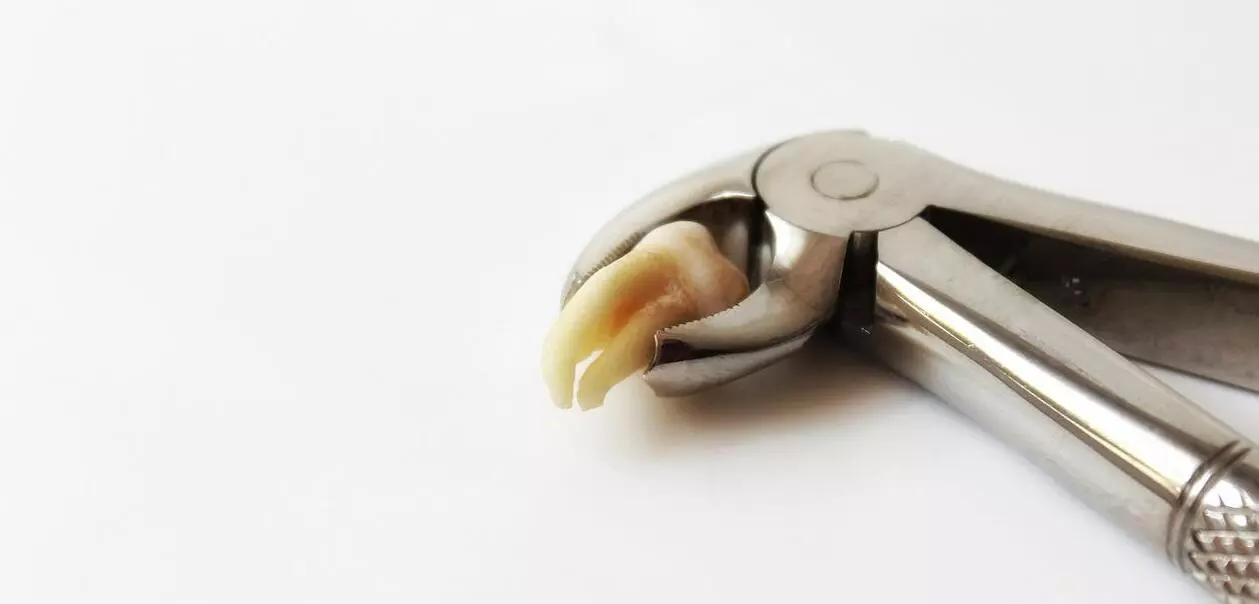Some pains are mental, while some are physical; the one that is both and more is dental! While you experience many bodily changes as you age, wisdom tooth growing in pain is the most common.
The pain often indicates that the wisdom tooth grows in the mouth through the gums and “adjusts” to the oral environment. At times, there is no need to worry, and the pain subsides as the tooth fully erupts. However, in most cases, infection, fever, and difficulty in eating accompany the wisdom tooth growing pain, and you will need immediate dental treatment.
Keep reading to learn what causes the wisdom tooth growing pain and the ways for wisdom tooth pain relief.

Wisdom Tooth Growing Pain – The Teething Dilemma
Many people, especially the mothers (of course, after dentists), know that the teething process is not a one-time game. It occurs in phases and at different ages.
Babies keep popping and growing their milk teeth from 6 months until 2.5 years of age. Permanent teeth start to come in, milk teeth shed off after six years of age, and the phase continues until 12-13 years of age and pauses. The word “pause” here is synonymous with waiting for the last pair of molars to erupt.
The third molar, or wisdom tooth as commonly known, comes between 18-25 years old. They are four in number and erupt in the four corners of the mouth (two uppers and two lower).
Pain is one of the biggest signs of a wisdom tooth coming out. Most people experience wisdom tooth growing in pain, while others might not even notice and already have all the wisdom before they know it.
Knowing that the wisdom tooth to the third molar is coming into the oral cavity is important so you can manage the signs and symptoms accordingly.
Seven Signs of Wisdom Teeth Coming Out
Dental problems are painful, but neglecting them is more painful. Here are the seven common signs of wisdom teeth coming out.

1. Dental Pain:
Wisdom teeth are the last ones to erupt and occupy the corner most spaces. It is common to experience mild discomfort and pain when the wisdom tooth comes out, as it will be making its place. People with smaller jaws or other dental problems can encounter severe pain during this process.
2. Pain in Jaw, Ears and Eyes:
As the wisdom tooth grows, it can put pressure on the nerve in the surroundings leading to a shooting, sharp pain in the jaws, often eyes and ears. Pain in the jaw is the most common sign of wisdom tooth growing in pain.
3. Gum Irritation:
When a wisdom tooth erupts, the corner of the mouth feels swollen. This is because the gums surrounding the wisdom tooth undergo changes leading to irritation, redness, bleeding and swelling.
4. White Speckles:
While you might not be able actually to acknowledge this sign, your dental professional will know. Small white spots behind the second molars indicate that the wisdom tooth is about to erupt.
5. Difficulty in Mouth Opening:
Wisdom tooth eruption leads to gums swelling and jaw pain, as already mentioned. As a result, the patient can experience difficulty or pain while opening and closing their mouth.
6. Wisdom Tooth Pain at Night:
Wisdom tooth pain at night can increase tremendously because, as we lay down, the blood flow to the head and neck region increases, increasing the pressure in the region. This pressure triggers wisdom tooth pain areas, making it difficult to sleep.
7. Frequent Headaches:
Some people experience frequent headaches often associated with the wisdom tooth pain area.
All of these signs of wisdom teeth coming out need dental attention. Often, extracting the wisdom tooth is the easiest and go-to solution, yet the dentist can recommend otherwise if it is coming out in a normal position and the symptoms resolve as it fully grows.
Causes of Wisdom Tooth Growing in Pain – Things you must know

It is important to eliminate the root cause of a wisdom tooth growing in pain to treat the pain or other signs and symptoms.
The wisdom tooth may erupt in a not-so-normal angle and position, or there is not enough room for the “newcomer” in the mouth, hence all the pain (mostly the wisdom tooth pain at night) and discomfort.
Other causes can alleviate the signs of wisdom teeth coming out, including:
Impacted or partially erupted wisdom tooth:
The most common cause that usually leads to wisdom tooth extraction is when it stays impacted or partially erupted. If the tooth is impacted, it will be fully inside the gums and will not be able to erupt in the mouth. If a wisdom tooth partially erupts, only a small part comes out of the gums.
Gum disease:
Existing gum diseases such as bleeding or receding gums elevate the wisdom tooth growing in pain by increasing the vulnerability of the gums.
Cysts:
Cysts are fluid-filled sacs, usually with the impacted or partially impacted wisdom teeth. If a cyst is present, it can lead to a severe wisdom tooth growing in pain.
Infection and abscess:
Infection can easily develop, especially if the gum is already vulnerable. Bacteria can invade the gums and the area behind the second molars, as it is difficult to clean, leads to infection and often abscess. If the patient does not get the treatment for the infection, it can cause fever and severe wisdom tooth pain.
Dental problems:
Every tooth in your mouth, especially the wisdom tooth, is susceptible to a dental cavity or tooth decay. Often, as the wisdom tooth erupts abnormally and is in proximity to its predecessor, the second molar, the area can accumulate bacteria leading to tooth decay.
The process of wisdom tooth eruption is difficult. However, the good news is that it is easy to manage the wisdom tooth growing in pain.
Best Ways to Ensure Wisdom Tooth Growing Pain Relief:
There are many ways to attain wisdom tooth growing pain relief, even some great home remedies. Nevertheless, the best option is always to consult your dentist, as they know better.

Home Remedies for Wisdom Tooth Growing Pain Relief :
Rinse with lukewarm salt water:
If you have ever had gum disease or tooth extraction, you will know that dentists highly recommend slat water rinses. Add a pinch of salt water in lukewarm water and do as many rinses throughout the day as you want. It helps bring down the swelling, aids in healing and helps in wisdom tooth growing pain relief.
However, if you have blood pressure issues avoid salt; use lukewarm water for rinses. Salt can spike your blood pressure, so always consult your dentist before you try it.
Use clove oil:
Clove has proven benefits in dentistry. It is a part of certain dental medications to treat dental pain and infection and aid in wound healing as clove has anti-inflammatory, antioxidant and antimicrobial effects.
Clove oil is a part of household pantries, and you will not have difficulty finding it. Just apply a little bit on your finger and massage your gums. Even if you do not have clove oil, take five to six cloves and boil it in water; use this clove water for rinses.
Heat and cold therapy:
This remedy is also one of the post-operative instructions given by the dentist. To get rid of dental pain and swelling, you can apply a hot or a cold pack to the area, and you will experience instant relief.
Over-the-counter drugs:
If no remedy helps with wisdom tooth growing pain, it is essential to visit the dental clinic. However, if you experience wisdom tooth pain at night and it is not possible to go to a dental clinic, you can take over-the-counter painkillers such as ibuprofen and aspirin.
If you try any home remedies, consult your dental professional first. Remember, not everything is for everyone. Your pain relief remedy highly depends on the root cause of a wisdom tooth growing in pain.
If you try any home remedies, consult your dental professional first. Remember, not everything is for everyone. Your pain relief remedy highly depends on the root cause of a wisdom tooth growing in pain.
Dental Treatment for Wisdom Tooth Growing Pain Relief :
Deep dental cleaning:
After a thorough dental examination, if the dentist sees fit, they can opt for a deep cleaning (curettage) around the wisdom tooth pain area to save the tooth if possible. Usually, after professional cleaning and removing bacteria-laden dental plaque (a sticky layer that forms around the tooth and gums), patients experience wisdom tooth growing pain relief.
Treatment for dental problems:
If the main cause of a wisdom tooth growing in pain is an existing dental problem like a dental cavity, the dentist will first treat it to see if the pain subsides or not.
Wisdom tooth extraction or removal:
The last yet the most common resort is removing the wisdom tooth from the mouth. In most cases, the patient experiences severe pain, and the pain goes to such an extent that it hinders their routine lifestyle.
The dentist will suggest wisdom tooth extraction in such cases, especially if the tooth is impacted, partially erupted, comprising oral hygiene or causing problems to the neighboring teeth.

What happens after the wisdom tooth removal?
People believe tooth removal is never a good option and can cause other problems.
Well, no, that is not the case.
If a dentist recommends tooth extraction, there are no ifs and buts, especially if they suggest it for the wisdom tooth growing in pain. Wisdom teeth or the third molar are the “extra” teeth in your mouth. If they are healthy, they cause no pain or dental problems, and then there is no harm in letting them stay in the mouth.
However, if they cause pain, infection and other problems, it is essential to remove them. Unlike any other tooth in your mouth, the best part is that a wisdom tooth does not need a replacement after extraction.
All you need to do is follow the post-operative instructions after removing the wisdom tooth growing in pain, and after a few days, you become fit as a fiddle.
Instructions to follow wisdom tooth removal:
- Do not eat hot, hard or spicy food for the next 24-48 hours after the tooth extraction
- Avoid brushing harshly from the extracted site for 24 hours
- Do not use the straw for the next 24 to 48 hours. Drinking from a straw can cause negative pressure in your mouth and disrupt the healing process of the wound, causing more problems and pain
- Do lukewarm salt-water rinses after 24 hours of wisdom tooth extraction (avoid salt if you have blood pressure)
- Use a cold pack on the area of the extraction to aid in healing
- Take all medications on time to avoid pain and discomfort after removal of wisdom tooth
- If you experience severe pain, swelling, bleeding or fever after wisdom tooth extraction, rush to your dentist
There are no side effects of wisdom tooth extraction. Instead, it is a savior and enables optimum oral health.
How long does wisdom teeth’ growing pain last?
Patients are not often comfortable with the idea of wisdom teeth extraction, and they seek ways to manage the pain if possible.
Pain and other associated signs related to the eruption of wisdom teeth usually go away on their own over a period of time. The patient can try the suggested home remedies for pain relief.
Whether the patient can tolerate the pain or not depends on the severity of the wisdom teeth growing pain and the duration it lasts for.
The pain associated with a growing wisdom tooth lasts for 7-14 days. If the pain is bearable and treatable with pain-relieving medications, then it is advisable to wait until the pain subsides and there is no need for an invasive dental treatment.
For the initial 2-3 days, you can experience cheek swelling and pain, especially at night. If the pain and other symptoms for more than 2-3 days, it is essential to visit the dentist so they can examine your growing wisdom teeth and suggest treatment or no treatment plan accordingly.
If things look bad, the dentist may suggest wisdom tooth removal. However, if everything seems okay in your oral cavity, your dental professional will ask you to wait and let the wisdom tooth come in.
How to Prevent Wisdom Tooth Growing Pain – Is it possible?
Wisdom tooth eruption is a natural and inevitable process. That does not mean you cannot manage or prevent wisdom tooth growing pain.
Here is how you can prevent, or at least reduce the wisdom tooth growing pain:
Practice great oral hygiene:
Brush your teeth twice daily and use dental floss with the proper technique (you can ask your dentist or dental hygienist to guide you on this).
Eat healthy food and avoid sugary things:
To keep dental problems like tooth decay at bay, eat healthy food, rinse your mouth after every meal as it will help eliminate bacteria from the mouth and avoid eating sticky and sugary food.
Visit the dental clinic regularly:
Where your eyes cannot reach, your dentist can easily see!
You can practice great oral hygiene; it is vital to visit your dentist regularly every six months. This way, the dentist can ensure optimum oral health and look out for any potential dental issues, especially a wisdom tooth growing in pain.
Key Takeaway
A wisdom tooth growing in pain can disrupt your lifestyle, make it difficult to eat and talk, and lead to sleepless nights. Furthermore, ignoring the mild signs of wisdom teeth coming out and not consulting the dentist can turn into your worst nightmare.
Once a dental problem initiates, there is no going back. You need the right dental treatment. Because, unlike any other body part, a tooth cannot heal or repair itself even though it is the hardest substance in your body.
So, as soon as you start experiencing the symptoms of a wisdom tooth erupting, ensure that you take all the necessary steps to save yourself from the agony and pain.

